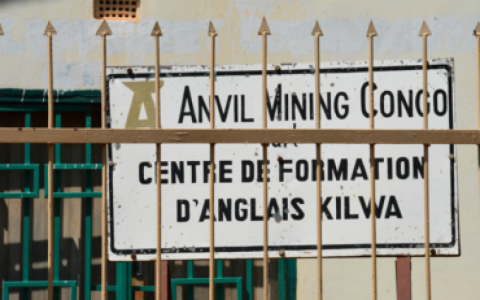
African Commission grants landmark compensation of US $2.5 million to DRC massacre victims
The African Commission on Human and Peoples’ Rights found the government of the Democratic Republic of Congo responsible for the 2004 massacre of over 70 people in Kilwa, in the southeast of the country, and granted a landmark compensation of US $2.5 million to the victims and their families.
The complaint, on behalf of 8 of the victims, was brought to the African Commission in November 2010 by ESCR-Net members Rights and Accountability in Development (RAID), Action Against Impunity and Human Rights (ACIDH) and the Institute for Human Rights and Development in Africa (IHRDA). The Commission communicated its decision to the parties in French last month.
An Australian-Canadian mining company, Anvil Mining, who operated a copper and silver mine at Dikulushi, 50 kilometres from Kilwa, was publicly rebuked for its role in the violations, which included providing logistical support to soldiers who indiscriminately shelled civilians, summarily executed at least 28 people and disappeared many others after a small group of lightly armed rebels tried to take control of the town. The Commission urged the Congolese government to launch a new criminal investigation and “take all due measures to prosecute and punish agents of the state and Anvil Mining Company staff.”
In a ground-breaking decision, the Commission found the Congolese government had violated nine human rights provisions of the African Charter, including extrajudicial executions, torture, arbitrary arrests, disappearances and forced displacement, amongst others. It awarded the 8 victims named in the complaint US $2.5 million, the highest ever award by the African Commission. It urged the Congolese government to identify and compensate other victims and their families not party to the complaint who were also directly affected by the attack.
The Commission said the Congolese government should formally apologize to the people of Kilwa, exhume and re-bury with dignity the bodies dumped in a mass grave, construct a memorial, provide trauma counselling for those affected and rebuild the schools, hospital and other structures destroyed during the attack. It requested the Congolese government to report back to the Commission within180 days (or by December 17, 2017) on what action it has taken to implement its recommendations.
The decision followed a 13-year legal battle for justice by the victims and their families, who have still not seen any soldier or company official brought to justice. The Commission found senior Congolese officials had interfered in the judicial process in Congo and failed to ensure the victims had impartial and independent justice.
The Commission was particularly scathing about the Congolese military trial held in 2006 which dropped charges against three Anvil mining personnel and exonerated Col. Ademar Ilunga, the commanding officer in charge of the soldiers at Kilwa. In its verdict, the Congolese Military Court had sought to justify the soldiers’ abuses on the grounds the people of Kilwa supported the rebels.
Anvil Mining began to work the Dikulushi mine in 2002. It evacuated many of staff from the mine following the minor uprising in Kilwa and provided an aeroplane and vehicles to transport some 150 soldiers to Kilwa. In 2010, the Dikulushi mine was sold to Mawson West, a small Australian mining company. In January 2015, Mawson West stopped industrial production at Dikulushi, stating the mine was no longer economically viable.
A Q&A with further background information can be found here: http://www.raid-uk.org/sites/default/files/qa_acphr_decision_on_kilwa_massacre.pdf
The full French African Commission decision is here: http://www.raid-uk.org/sites/default/files/african_commission_decision_on_kilwa_2017.pdf
The English translation of the Remedies section is available here: http://www.raid-uk.org/sites/default/files/achpr_english_translation_of_remedies.pdf
